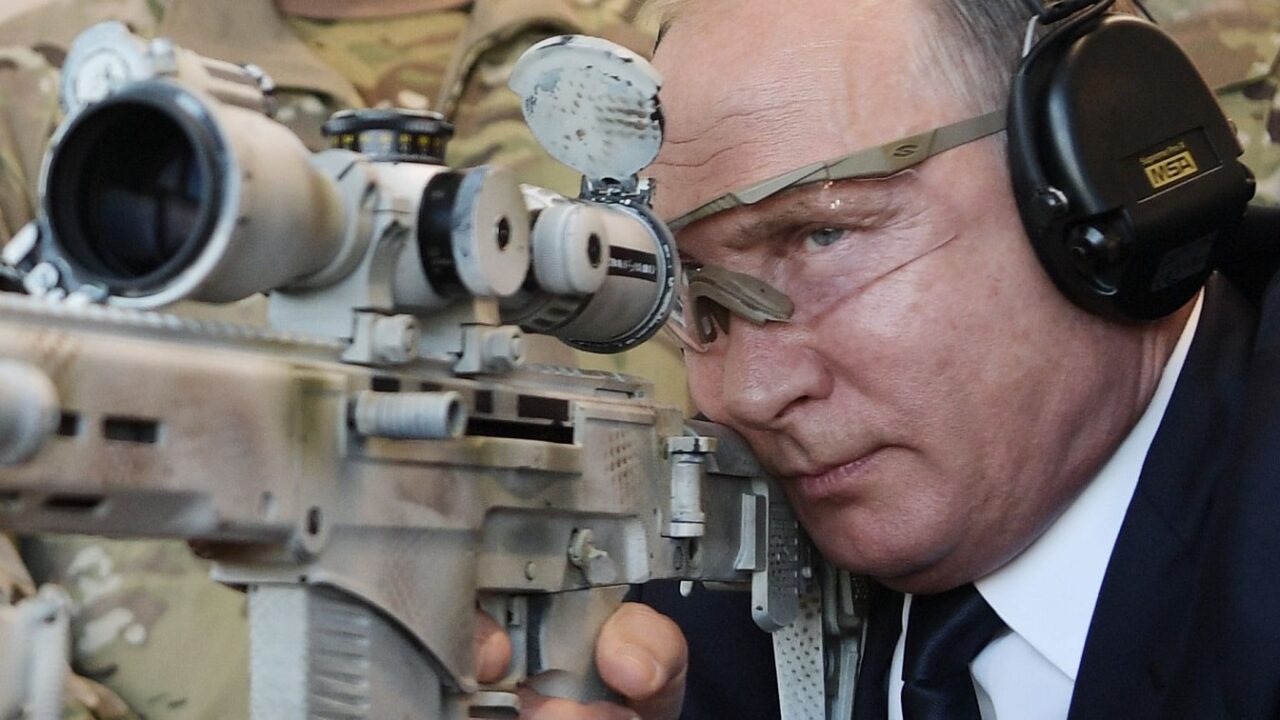Is Russia or Putin the Sick Man of Europe?: The “Sick man of Europe” is a term that was first coined by Emperor Nicholas I of Russia to describe the Ottoman Empire in the mid-19th century as it faced a significant decline. Since then the term has been given to a nation that is located within the European continent and is experiencing a time of economic difficulty or impoverishment. Likewise, it has been used to describe a power that is well past its zenith.
Following the dissolution of the Soviet Union, Russia certainly fit the bill as being quite unwell, it not outright sick. That sentiment has been often repeated in the past two decades, and the Russian Federation has arguably had a long and lingering illness – and its unprovoked and unwarranted invasion of Ukraine is likely to help it recover.
But perhaps it isn’t actually Russia that is now terminally ill, but rather its leader, Vladimir Putin, and it could explain his seemingly chaotic actions.
Cancer rumors have lingered for years and were renewed this year following his orders to invade his neighbor to the south. Others speculated that it could be Parkinson’s, which suggests why he often fiercely grips the massive tables he’s known to hold meetings – as it allows him to retain his composure.
Whatever the illness, the rumors continue that Putin has just a few years to live and the invasion was his way to cement his legacy.
Restoration of the Soviet Union
Even if Putin is hiding an illness, he hasn’t hidden his views that the collapse and dissolution of the Soviet Union “was the greatest geopolitical catastrophe of the century.”
In his 2005 annual state of the nation address to the nation’s parliament, he called it a tragedy for Russia and the Russian people.
“Tens of millions of our fellow citizens and countrymen found themselves beyond the fringes of Russian territory,” Putin stressed in the speech.
In the years that followed, his opinion on that has never wavered. Last December, he lamented the demised of what he described as “historical Russia” – meaning the lands it conquered over the centuries, which included not only an independent Ukraine but the Baltic States of Estonia, Latvia, and Lithuania.
It is also important to remember that Stalin may have summed up Russia’s role best in the Soviet Union when he stated, Russia was “first among equals.”
Putin – How Sick?
Recent photos have circulated that show Putin, who turned 70 earlier this year, with what appear to be IV track marks on the back of his hand, which have renewed the buzz of his physical demise. The fact that such rumors continue is likely upsetting for the leader who is so obsessed with his virile image, and who likes to project himself as a keen sportsman.
Image is always important to world figures, especially dictators and despots – who like to present an image that they are loved when in actuality it is fear that keeps people in line. In the case of Putin, he also understands the role that propaganda played during the Soviet Union – a land that once claimed there was no murder in the people’s paradise.
Moreover, Putin has been shown to believe his own propaganda.
That was certainly the case when he thought his troops would be received in Ukraine with flowers – which explained why many of the troops in the initial invasion arrived with dress uniforms instead of winter clothing.
Even if Putin is not actually dying, his invasion is part of building a legacy – and in that way, it is a mental illness that should be seen as a concern. He isn’t just obsessed with rebuilding the Soviet Union but rather could be so unhinged that he’d do anything to obtain his goal, including the use of nuclear weapons. The great danger is that – like a deranged child – Putin could destroy what he can’t possess.
A Senior Editor for 19FortyFive, Peter Suciu is a Michigan-based writer. He has contributed to more than four dozen magazines, newspapers, and websites with over 3,000 published pieces over a twenty-year career in journalism. He regularly writes about military hardware, firearms history, cybersecurity, and international affairs. Peter is also a Contributing Writer for Forbes. You can follow him on Twitter: @PeterSuciu.

